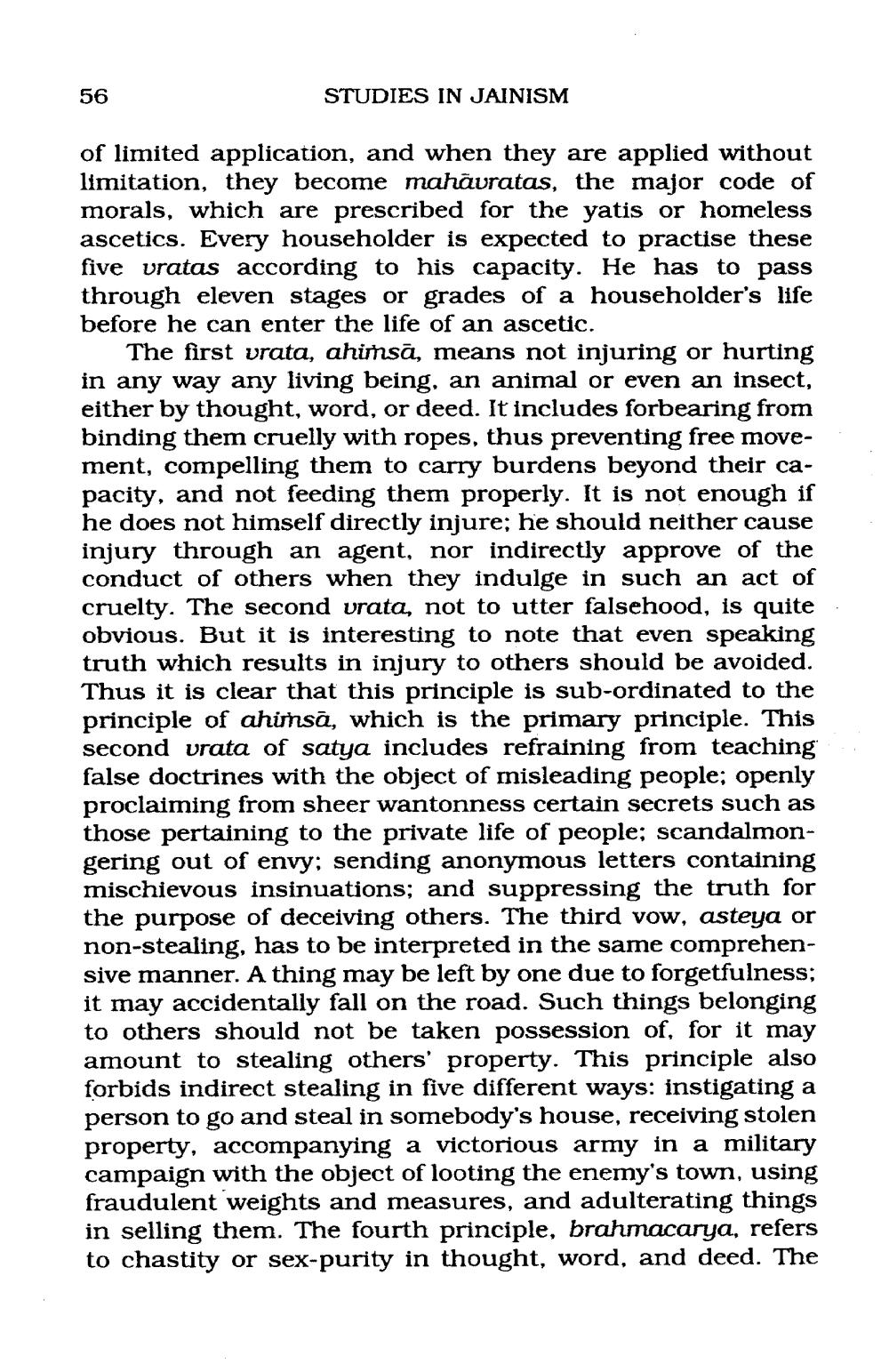________________
56
STUDIES IN JAINISM
of limited application, and when they are applied without limitation, they become mahāuratas, the major code of morals, which are prescribed for the yatis or homeless ascetics. Every householder is expected to practise these five vratas according to his capacity. He has to pass through eleven stages or grades of a householder's life before he can enter the life of an ascetic.
The first vrata, ahinsā, means not injuring or hurting in any way any living being, an animal or even an insect, either by thought, word, or deed. It includes forbearing from binding them cruelly with ropes, thus preventing free movement, compelling them to carry burdens beyond their capacity, and not feeding them properly. It is not enough if he does not himself directly injure; he should neither cause injury through an agent, nor indirectly approve of the conduct of others when they indulge in such an act of cruelty. The second vrata, not to utter falsehood, is quite obvious. But it is interesting to note that even speaking truth which results in injury to others should be avoided. Thus it is clear that this principle is sub-ordinated to the principle of ahinsa, which is the primary principle. This second vrata of satya includes refraining from teaching false doctrines with the object of misleading people; openly proclaiming from sheer wantonness certain secrets such as those pertaining to the private life of people; scandalmongering out of envy; sending anonymous letters containing mischievous insinuations; and suppressing the tr the purpose of deceiving others. The third vow, asteya or non-stealing, has to be interpreted in the same comprehensive manner. A thing may be left by one due to forgetfulne it may accidentally fall on the road. Such things belong to others should not be taken possession of, for it may amount to stealing others' property. This principle also forbids indirect stealing in five different ways: instigating a person to go and steal in somebody's house, receiving stolen property, accompanying a victorious army in a military campaign with the object of looting the enemy's town, using fraudulent weights and measures, and adulterating things in selling them. The fourth principle, brahmacarya, refers to chastity or sex-purity in thought, word, and deed. The




